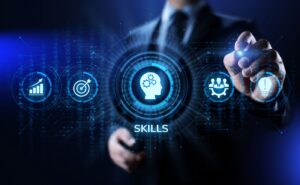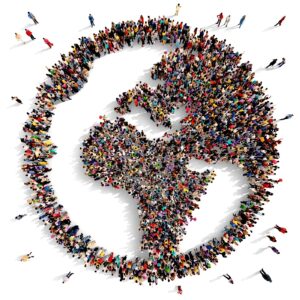Here’s a fun fact: In 2020, our planet had more connected devices than humans — around 30.73 billion smartphones, laptops, TV’s, along with security cameras, refrigerators, traffic lights, electricity meters and more. All of these ‘communicate’ with each other, part of the Internet of Things (IoT). In four years, by 2025, that figure will more than double, over 75 billion; 11 devices for every human being on the planet.
We are surrounded by and dependent on machines that have integrated into our daily lives. With the latest AI evolution, those machines learn on their own, autonomously. By interacting with humans and the environment, they now recognise words, images and gestures, make thousands of PowerPoint presentations in hundreds of languages, take orders, educate or placate customers, drive cars, deliver packages, recognise faces, identify fraudsters, track down criminals, compose music, write sports reports, and defeat the greatest chess and Go players.
What’s left for humans?
The rise of the machines, fascinating or disturbing?
Depends on where you are and who you ask. In Japan there’s a far more positive view on automation. In the US 70% of the workforce fear the rise of robots. In the UK, roughly 50% expressed concern on robots driving unemployment. On the face of it, AI is great news for the economy. A recent report published by PwC estimates that artificial intelligence will add a US$15.7 trillion windfall to the global economy by 2030, boosting local GDP’s as much as 26 percent. AI will also radically transform our societies (potentially for the better). Imagine how many lives could be saved through continuous monitoring of digital patient data, or how much more efficiently food can be grown, whether farming or in a lab. In Japan, there’s a more positive perspective on about automation. In the US and UK, therfear robots: it’s deeply embedded in Western culture.
So why is there such worry about the defining technology of our age?
Read the rest of the article on Medium.



